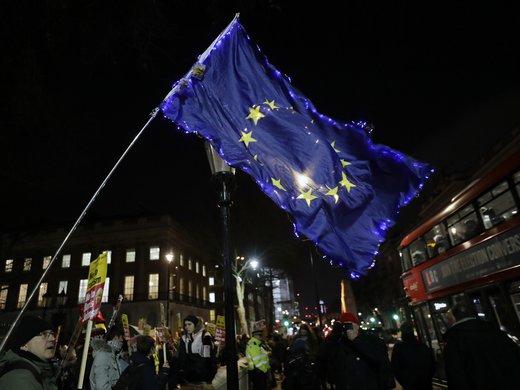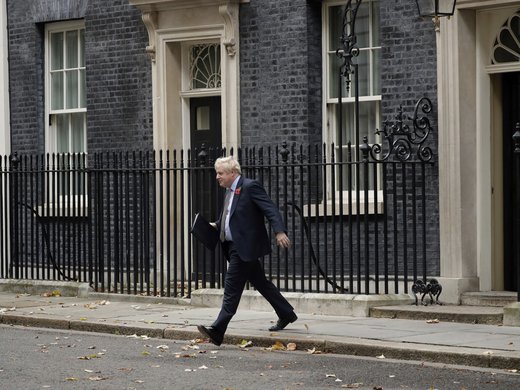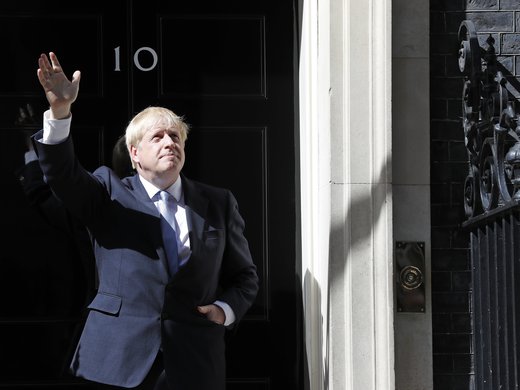While the Leave side celebrated their surprise victory and the Remain side was in shock, international lawyers in London and Brussels must have been frantically weighing the options for implementing their governments’ respective “Brexit” negotiation strategies. The referendum question did not specify what degree of separation was intended. There appear to be a few options.
Does Brexit need Article 50 of the Treaty on the European Union?
The first question is easy to answer. Unless the United Kingdom chooses to violate European Union and international law on a significant scale, there is only Article 50 of the Treaty on the European Union (TEU), or changes to the existing treaties, as a valid exit from the EU treaties. Violating EU law does not generally pay off, as fines can be imposed and, under international law, countermeasures could be adopted. Is recourse to international law even possible in this situation? The “Hungarian president case” of the Court of Justice of the European Union is instructive. Hungary complained that its president was denied access to Slovakia on a private visit to a local festival. While citizens enjoy free movement under EU law, the court sided with Slovakia’s denial of entry, agreeing that although heads of state enjoy special rights under international law, these same rights also create exceptions to EU rules of free movement. Legal advice to the UK would include not underestimating the power of either EU or international law while in this strange limbo between invocation of article 50 TEU and breach of EU and international law. From a political economy perspective, it might not be prudent to violate existing economic and other obligations vis-à-vis one important set of partners while also seeking to negotiate new economic accords with other parts of the world. There are some who have argued that, after the referendum, the UK government is under an obligation to make an article 50 TEU declaration. European Union law prefers to keep its member states and contains no such obligation. The question is, could a member state government change its mind after making an article 50 TEU declaration? Again, the answer would be: most certainly. Even at the very end of the negotiations, there would still be the option to withdraw such a declaration in accordance with the member state’s constitutional provisions.
Could “no Brexit” be an option?
The UK referendum was not binding constitutionally, and many scholars have argued that a very tight referendum does not send a clear signal for fundamental constitutional change. The UK Parliament is sovereign and thus even a very clear Brexit referendum cannot bind it legally. So Parliament — and, with added emphasis, a new parliament elected in a new general election — could decide to ignore the referendum. Politically, however, it would be very difficult to completely ignore the referendum. Given the implications of leaving the EU internal market, some have suggested that a second version of the Brexit deal, with greater control over immigration, could still pay lip service to Brexit while largely maintaining the status quo.
What about a “cosmetic Brexit”?
There is, of course, the possibility for a “cosmetic” Brexit, by which the UK formally leaves the European Union but remains a participating country in the single market. It could be an arrangement similar to that of the G77 and China: the UK would get special mention, and those actions in which it participates would be said to be acts by the European Union and the UK.
The disadvantage for the UK would be that this would mean accepting most of the economic rules, with very little say on their development and no curb on inner EU/UK immigration.
Some have claimed that the Government of Scotland is lobbying for an option whereby it would remain a full EU member and the rest of the UK would leave. While all possible options should be explored, this one would require some very uncomfortable acrobatics. While EU law applies in many other parts of the world, this is mainly by virtue of the member state having overseas holdings. The case of the post-Brexit UK would be entirely different, as it would not be a member and thus could not decide which parts of EU law would apply to parts of its territory. Pre-independent Scotland would also not have all necessary competences to fulfill EU obligations.
Could a “messy divorce” occur?
This option involves both sides washing their dirty laundry in public and the entire world economy suffering as a consequence.
Leave campaigners cleverly pulled the wool over the UK electorate’s eyes when they claimed “Our trade relations with the rest of the world remain unchanged” (Lord Lawson, 29 February 2016). This is, of course, utterly untrue. They claimed that membership in the World Trade Organization (WTO) and “continuing” trade agreements would protect the post-Brexit UK. However, the terms of the UK’s membership in the WTO, and all other “mixed” trade agreements (trade treaties concluded by both the EU and its member states) could be in jeopardy if the UK tries to exit without first securing a successful transitional agreement with the European Union.
The UK itself concluded, in the Balance of Competence Review by the UK Department of Business, Skills and Innovation, that: “gaining greater control over such relations with third countries means giving up benefits of access to the Single Market [in the EU].”
Admittedly, the UK could probably sign more trade deals with non-EU countries if it left, but there are two caveats. First, those deals aren’t easy to agree while maintaining important protections such as a public health system such as the National Health Service, and public education, which are areas of keen liberalization for many other countries. Second, as seen in the Trans-Pacific Partnership discussions, even if the European Union has nothing to do with such treaties, they can take a very long time to negotiate, and they remain controversial among Brexit supporters.
Even if the UK left the European Union and the UK forwent the considerably increased weight that the EU commands in negotiations, the United States would surely ask the UK for similar things in the Transatlantic Trade and Investment Partnership after Brexit — or even more. This assumes that the United States would want to negotiate one, which US officials have thus far denied. Indeed, President Barack Obama hinted at the fact that the UK would have to join “the back of the queue” in the event of a Brexit. This, in a context of considerably more pressure on the UK to quickly conclude trade deals, could mean sensitive areas, especially in services (liberalized in the United States, but not in the UK), finally being added to the table.
From a legal perspective, a solution negotiated in good faith would be the best option for all parties involved. It seems that the most optimistic Brexit vision seems unlikely to be realized, given that other countries are not exactly rushing to conclude trade deals with the UK. All options involve a period of considerable uncertainty, especially if the European Union does not even start trade negotiations with the UK until after Brexit. My personal opinion? The UK would be much better off if it stayed a member state of the European Union.


